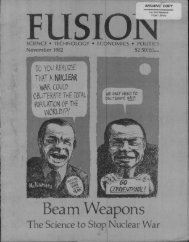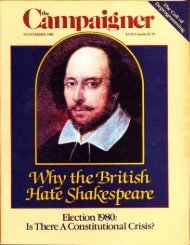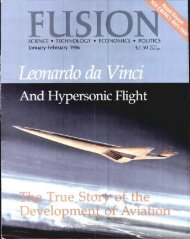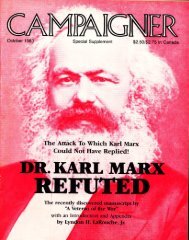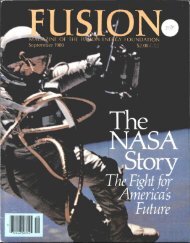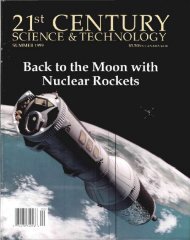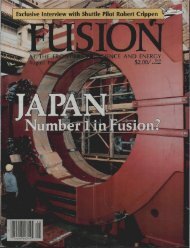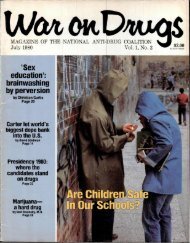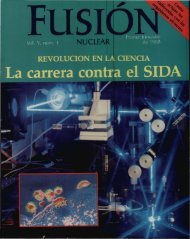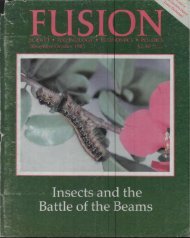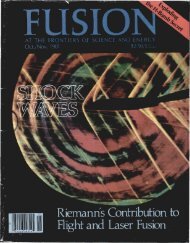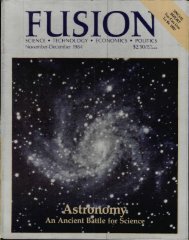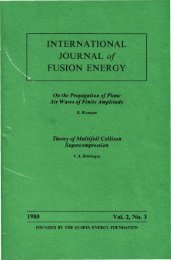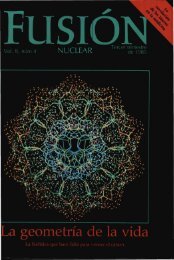S LIBERAL HELPERS
S LIBERAL HELPERS
S LIBERAL HELPERS
- No tags were found...
You also want an ePaper? Increase the reach of your titles
YUMPU automatically turns print PDFs into web optimized ePapers that Google loves.
59perhaps nobody outside of Marx himself whose briefest the October days. The hidden strength of the organism,sentence carries that density of thought, with the conse- its most deeply rooted instincts, its power of scentquent richness and multiplicity of overtones. Trotsky's inherited from animal forebears -- all these rose andbroke through the pyschi routine to join forces with thebest writings theoretically, tend to shorter simpler higher historico-philosophicalabstractionsinthe servicesentences; ideas are spread more thinly and have a more of the revolution. Both these processes, affecting thelinear quality, at times approximating the crude notion individual and the mass, were based on the union of theof '_making points." Compare for example two' of conscious with the unconsciosu: the union of instinct nthe mainspring of the will -- with the higher theories ofTrotsky's better pieces, "Tolstoy: Poet and Rebel" and thought. [My L/re]"Results and Prospects" with, respectively,/Luxemburg'spieces "The Spirit of Russian Literature: Life of This passage so accurately describes the awakening ofKorolenko" and "The Mass Strike." the powerful forces of human creative potential, that it"Style" may seem to be a vague conception to those could only have been written by an exceptionally giftedwho have learned to regard it as a trick or embellish- individual. It is not, emphatically, the experience of anment. But that "ineffable" quality of style, at least essentially self-knowing intellect. The passage describesamong talented writers, is perhaps the most exact single perfectly the emotional and intellectual process ex-! key to the gestalt of underlying conceptual processes. In perienced by someone possessing a strong sense of self-Lev Davidovitch's case, there is a clear "stylistic" conscious identity, whose "everyday" sense of self is stillreflection of the already cited infantile mechanistic to some degree that of the infantile ego, when that indefectsfrom which he suffered throughout his life. It is dividual's self-conscious 'T' is suddenly "filled" withnot accidental that he writes his most potent prose when emotions uniquely associated with creativity, and givenhe is analyzing superstructural social processes, e.g., in emotional force and potency. Under these specialThe History of the Russian Revolution, for it is in just conditions the normal "I" of the ego is taken over andthat realm that he rises to the height of his revolutionary subordinated to the newly potent "I" m self-conscious-.capacities. hess. This is the self "stronger than the self of everydayexistence," precisely.In fundamentai questions of dialectical method, andespecially economic theory, despite brilliant intuitions, Trotsky's comprehension of creativity is absolutelyTrotsky compares very poorly with Luxemburg. That is, correct, from the standpoint of the ego!s oceanic exheis weakest intellectually in.precisely those areas which perience of creative activity. Expressions such as "indemanda sustained self-conscious mastery qf creativity spiration" and "the creative union of the conscious withitself. Nor is this an academic matter, for in her lifetime the unconscious" indicate that for Trotsky the full depthLuxemburg far surpassed both Lenin and Trotsky" in of such processes is not at the command of his everydaywealth of basic strategic conceptions for the inter- self. To his ego they remain unconscious. His selfnationalmovement as a whole, consciousness is an other self.The self-conscious Trotsky is the self who charac- He says, "The hidden strength of the organism, itsterizes best his own noetic processes, most deeply rooted instincts, its power of scent inheritedfromanimal borebears." While we cannot assume thatMarxism considers itself the conscious expression of the this is meant as a literal scientific statement, theunconscious historical process. But the "unconscious"process, in the historico-philosophical sense of the term imagery suggests the bourgeois-reductionist attitude-- not in the psychological [sic] n coincides with its toward the unconscious as categorically unconscious,conscious expression only at its highest point, when the e.g., Freud; as primitive or animalistic emotions andmasses, by sheer elemental pressure, break through the processes impenetrable to self-conscious control.social routine and give victorious expression to thedeepest needs of historical development. And at such Normally, self-consciousness is the impotent superego ofmoments the highest theoretical consciousness of the bourgeois society. The actual quality of\"revolutionary.epoch merges with the immediate action of those op- will" is alone the property of the self-knowing self, thepressed masses who are farthest away from theory. The self which knows its own mind. When L.D. states thatcreative union of the conscious with the unconscious _iswhat one usually calls "inspiration." Revolution is the "instinct" is "the mainspring of the will," he isinspired frenzy of history, describing a self-consciousness without will, whichEvery real writer knows creative moments, when depends upon transfusions of emotional energy from asomething stronger than himself is guiding his hand; source outside the control, and impenetrable to the gazeevery real orator experiences moments when some one of a passionless self-consciousness. Thus, will appears instronger than the self of his every-day existence speaks the guise of instinct! (Recall his depiction of Lenin'sthrough him .... The utmost spiritual vigor likewiseinfuses at times all personal activity connected with the peasant qualities.)movement of the masses. This was true for the leaders in For Freud, the will is identified with the superego and



